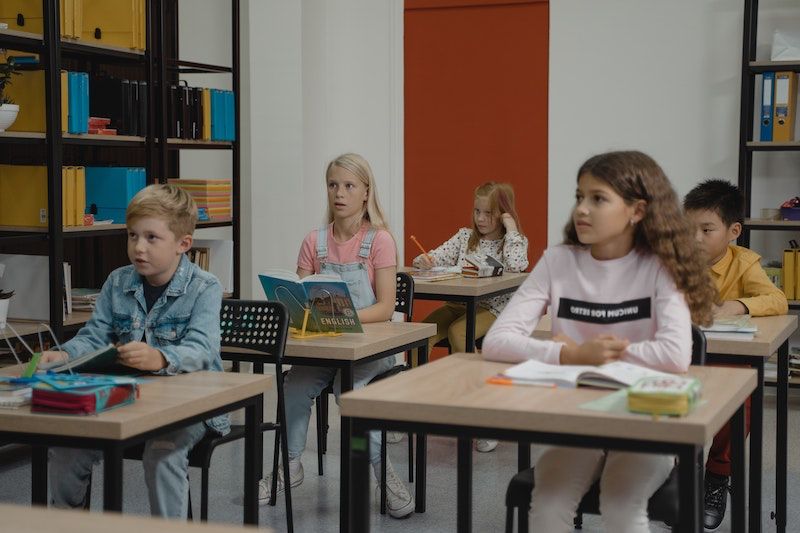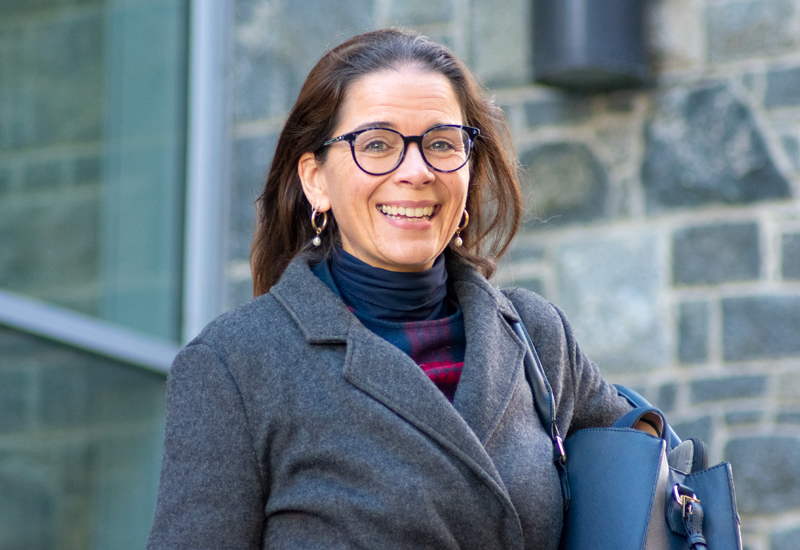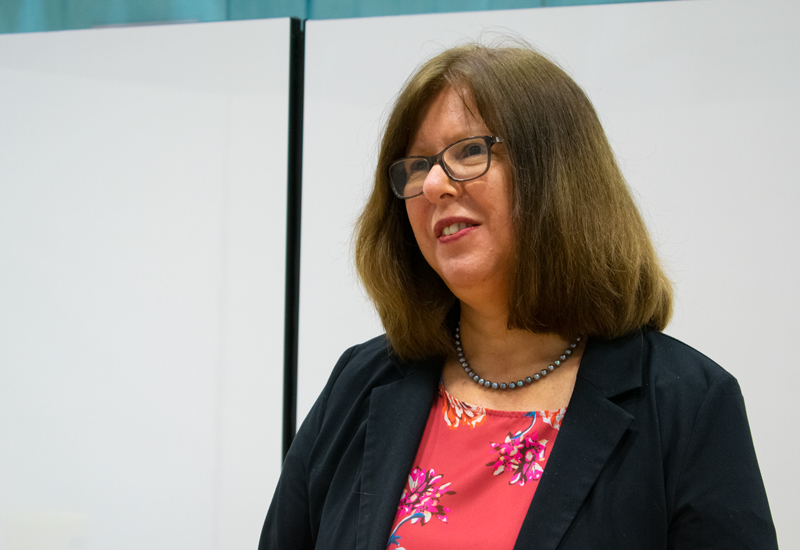

From applying for a seat on the bus, to respecting their classmates' personal space, children who return to school next week will have to comply with a raft of “enhanced measures” that aim to protect their health and that of school staff.
The decision to re-open schools was taken following discussions between the Civil Contingencies Authority, the Committee for Education, Sport & Culture, and Public Health Services.
The bodies agreed that most pupils can go back into school next Monday – 8 March. The only exceptions are pupils in Year 10 and above, who return next Tuesday, giving pupils in Years 7, 8 and 9 extra time to adjust to their new class bubbles.

Pictured: Deputy Andrea Dudley-Owen said that with the support of Public Health, Education had developed a detailed "enhanced measures" approach.
When they return to school, children and staff will have to stay at least one metre from each other. Education accepts that this may be difficult for younger children, but stated that children will get “gentle reminders about the need to respect personal space” throughout the school day.
Class bubbles will ensure that mixing between different groups of pupils is restricted. These bubbles will affect pupils from Reception to Year 9. Years 10 to 13 will have year-group bubbles, as older students can be “expected to follow social distancing more easily” according to Education.
School buses will have fewer seats available, to adhere to strict social distancing measures. Parents must apply to schools for seats for their children before schools re-open. Secondary-aged pupils must wear a face mask on the buses.
School days will have staggered start and finish times, to keep the number of parents and children at school gates at the same time to manageable, socially-distanced, levels.

Pictured: Dr Nicola Brink, Director of Public Health, said: "While nothing is ever entirely risk-free, we believe that with the right mitigations in place we can safely reopen schools."
Public Health has recommended that face coverings for adults and older students are worn whenever they move around school buildings, although they have stopped short of making them mandatory. Primary-aged children do not have to wear face coverings, although they can choose to do so.
School buildings and facilities will be deep-cleaned every evening using approved, specialist cleaning products, and there will be extra cleaning of communal areas and surfaces in the middle of the day. Schools will also introduce hand-washing rotas to ensure all pupils clean their hands regularly.
Primary school pupils will need to take a packed lunch. Secondary school pupils will also need a packed lunch, although canteens may offer a packed lunch service for those unable to do so.
Details of the new measures and FAQs are available online. Questions can be emailed to educationqueries@gov.gg
Pictured top: Pupils will return to classrooms next week, marking an end to home-schooling for Lockdown Two.
Comments
Comments on this story express the views of the commentator only, not Bailiwick Publishing. We are unable to guarantee the accuracy of any of those comments.